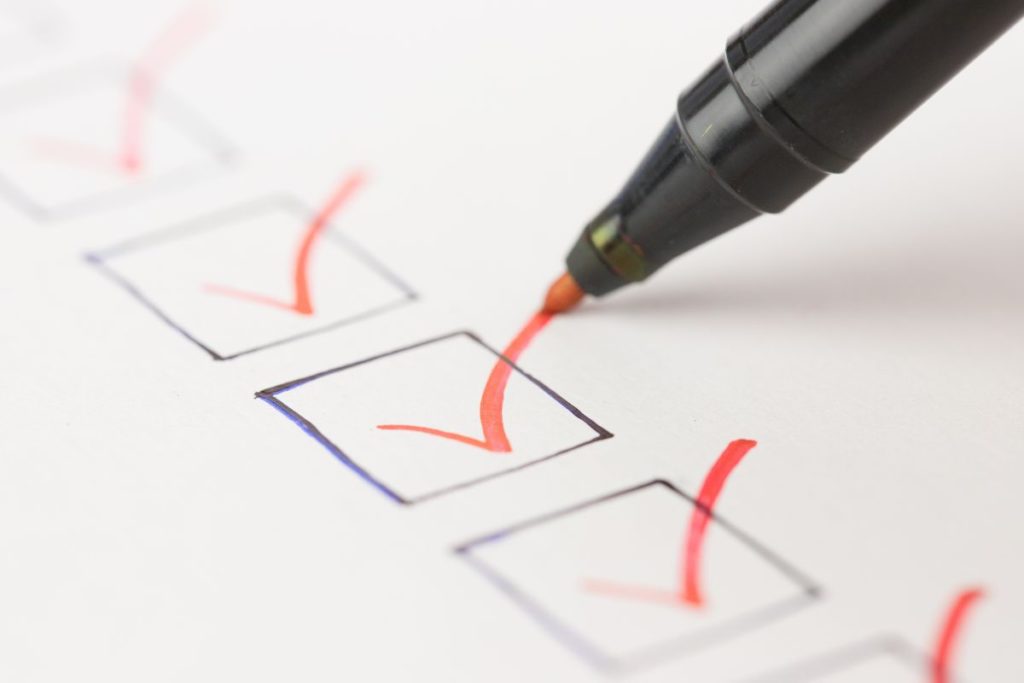We all know the saying: an hour of planning can save you 10 hours of doing. Except when it comes to your estate, an hour of planning will save your family 10 stressful hours of doing. We are glad you’re reading this, because we have some tips in this estate planning checklist to kickstart your estate plan and hit the ground running.
The Estate Planning Checklist Pre-Planning Phase
Take inventory of your moveable property. This can be done in whatever way works for you– open a spreadsheet or jot down your things: cars, jewelry, collectibles, antiques, etc.
Inventory financial assets. Examples include checking/savings accounts, brokerage accounts, 401ks, stocks, bonds, mutual funds, securities, and investments, including location and contents of safety deposits, insurance policies, and benefits. Don’t forget to think about your accounts receivable: Who owes you money?
Notate your debts and liabilities. Be sure your beneficiaries don’t encounter any unwelcome surprises regarding their inheritance!
Take stock of your real estate. What property do you own? Where is it located? How much is it worth? Is there a mortgage balance on the property? Is it rented or are there other arrangements about the property that only you know about?
Choose your beneficiaries. Who do you want to inherit from you? On the other hand, who do you not want to inherit from you? Also, remember that the “who” can be both people and organizations.
Identify and list where important documentation can be found: birth certificates, marriage certificates, social security information, property deeds, and titles. In addition to documentation, the same (or another) person should be privy to your account information and access instructions, or at least know how to get it when they need to.
The Planning Phase
Create a will with an experienced estate planning attorney to take control of the disposition of your assets when you pass. Other important decisions are addressed in your will, including:
- Who your beneficiaries are, and what assets they will receive
- Your named executor, who will handle your estate’s affairs, distribution, and debts after your passing
- Your wishes regarding your medical care and how decisions are to be made in the event you cannot communicate this information yourself
- Any other wishes you have: pets and their care, business succession plan, funeral arrangements, donations, etc.
If you already have a will, you will want to revisit it so you know your beneficiaries are covered and are not subject to an invalid will in the future. Changes on multiple fronts will affect whether your estate plan is as effective as it once was: estate law changes, tax law changes, and changes in your life.
Secure a power of attorney. A power of attorney is a document you create that authorizes someone to manage your affairs and act on your behalf if you become incapacitated or otherwise unable to manage your affairs.
Create a letter of instruction for your loved ones. While a letter of instruction is not legally binding, it functions as a roadmap, which could prove very helpful to those handling your affairs.
Consider establishing a trust, which gives you the power to set the terms for managing your assets and beneficiary distribution. Here, a trustee will handle your assets on your terms. Establishing a trust can also help expedite the distribution of assets, avoid the probate process, and save on associated probate costs. Trusts are also a better option than wills where there are blended families, a beneficiary with special needs, or the need to protect a beneficiary (such as someone with addiction concerns).
Decide whether you’d like to pre-plan your funeral and arrangements to ease the burden on your loved ones.
If you are a business owner, you may want to preserve your hard work by protecting your assets and operations management. A smart way to protect your business is to have a succession plan that allows you to take control of who has future shares in your business and how proceeds will be distributed.
Take Control of Your Estate Plan
If you’re ready to talk to an estate planning attorney, we’d love to hear from you. If you are interested in learning more, we invite you to attend one of our free, educational workshops. You’ll leave the seminar with newfound knowledge on making your estate plan work for you, avoiding common pitfalls, and the answers to some of our most frequently asked questions.




